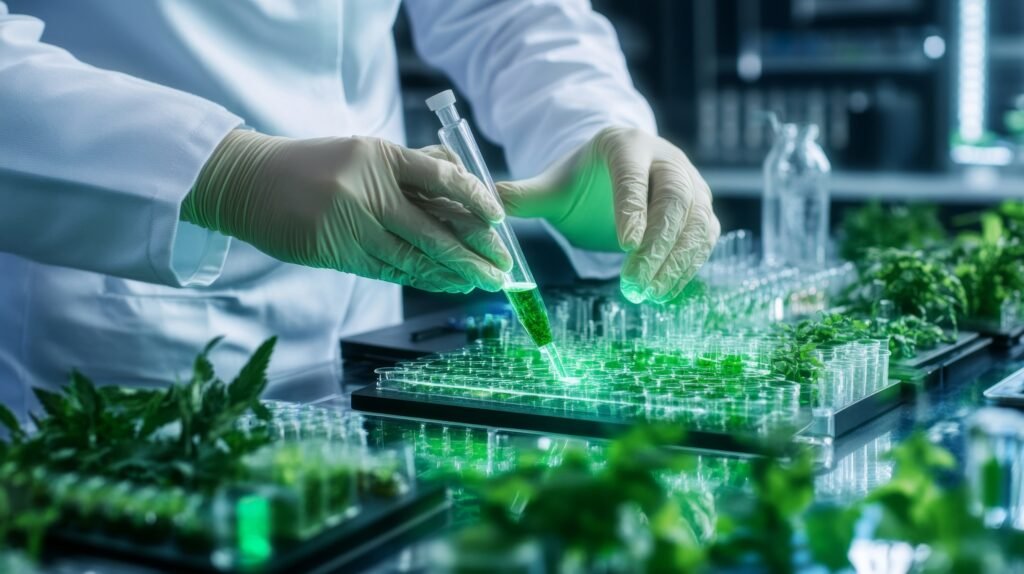Biotechnology is emerging as one of the most promising and transformative disciplines in modern science. Its impact ranges from medicine and agriculture to environmental protection and industrial production. As we move into the future, biotechnology is positioned not only as an essential tool but as the science of the future that can address some of the most critical challenges facing humanity.

Innovation in medicine and health
One of the fields most impacted by biotechnology is medicine. Advances in gene therapies and personalized medicine are revolutionizing the treatment of complex diseases. Gene editing techniques, such as CRISPR-Cas9, allow scientists to modify DNA with unprecedented precision, offering new hope for the treatment of inherited diseases and certain types of cancer.
Biotechnology also plays a crucial role in the development of innovative vaccines and therapies. For example, biotechnology’s ability to respond rapidly to global pandemics. Furthermore, synthetic biology research is opening up new possibilities for creating medicines from modified microorganisms, which can lead to more effective and less expensive treatments.
Revolution in agriculture and food
In the field of agriculture, biotechnology offers solutions for increasing productivity and sustainability. Genetically modified crops are engineered to resist diseases, pests, and adverse weather conditions, which not only improves agricultural yield but also reduces the need for pesticides and chemical fertilizers. These advances contribute to more efficient and sustainable food production.
Biotechnology also plays a role in the creation of functional, nutritionally enriched foods designed to improve human health. Examples include vitamin-enriched cereals and probiotic dairy products that offer additional digestive health benefits. This focus on healthier, more functional eating is a growing trend that biotechnology is driving.
Environmental solutions and sustainability
Biotechnology has a significant impact on environmental protection and promoting sustainability. Through bioremediation, microorganisms are used to clean contaminants in soil and water, offering an environmentally friendly solution to industrial pollution problems. This technology not only helps restore damaged ecosystems but also prevents future environmental damage.
Furthermore, industrial biotechnology is facilitating the production of biofuels and biodegradable products, reducing dependence on fossil resources and minimizing the environmental impact of waste. The creation of biodegradable materials from biomass represents a significant advance in reducing plastic waste, contributing to a more sustainable future.
Advances in industrial biotechnology
In the industrial sector, biotechnology is transforming the production of goods through fermentation and other biological processes. The ability to use enzymes and microorganisms to produce chemicals, materials, and energy more efficiently is a significant growth area. These processes are not only more energy-efficient but can also reduce waste and harmful byproducts.
Industrial biotechnology also drives the circular economy, a model that seeks to maximize the value of resources and minimize waste. The integration of biotechnology processes into product manufacturing and recycling contributes to a more sustainable economy that is less dependent on non-renewable natural resources.
Impact on research and development
Biotechnology drives continuous advancement in scientific research and technological development. Biotechnology laboratories are at the forefront of basic and applied research, creating new technologies and solutions that can be applied in a variety of industries. This dynamism not only accelerates progress in key areas but also fosters interdisciplinary innovation.
Advances in biotechnology are also creating new opportunities for international collaborations and public-private partnerships, expanding the reach and impact of scientific research. These collaborations enable the sharing of knowledge and resources, facilitating the development of global solutions to common problems.
